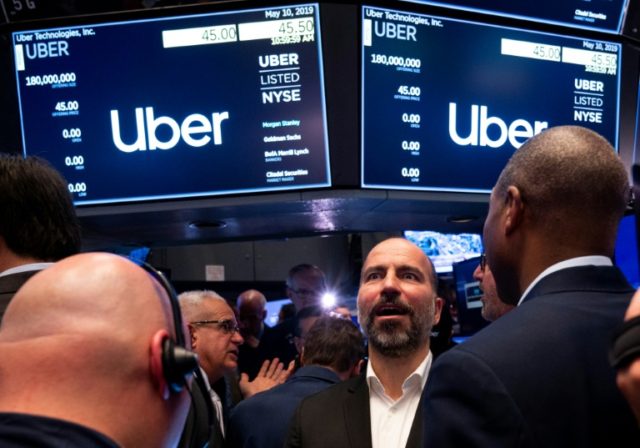Ride-sharing service Uber posted poor quarterly results this week, with the Company’s losses in the second quarter alone being larger than the 2018 annual losses for all but three companies in the S&P 500.
CNBC reports that ride-sharing app Uber posted a loss of $5.2 billion in the second quarter, with only three S&P 500 companies losing anywhere near that amount in the entire year of 2018. Uber made its stock market debut in May and has attributed most of its Q2 losses to stock-based compensation, excluding that expense the firm’s losses amounted to approximately $1.3 billion.
High costs as a result of stock-related compensation are commonplace for Silicon Valley firms as lucrative equity packages are often used by startups to lure talented engineers and staff away from other more established firms with guaranteed salaries. These stock options eventually vest and the firms are then forced to account for the costs. Snap Inc. posted a $2 billion expense shortly after its first earnings report released after its IPO in 2017.
Uber rival Lyft posted a $296.6 million stock-compensation expense after posting an $894 million cost in Q1. Uber’s shares traded around eight percent lower in premarket trading on Friday.
Of all S&P 500 companies, only 26 lost money in 2018. Only three lost more for the year than Uber did in its second quarter, these companies were General Electric, which lost $20.6 billion, Kraft Heinz, which lost $10.2 billion, and Newell Brands which lost $6.8 billion. GE’s huge deficit was the result of a $23 billion charge in the third quarter for the company’s struggling power business.
Here are the posted figures by Uber compared to analysts expectations, compiled by CNBC:
- Loss per share: $4.72, versus $3.12 expected
- Revenue: $3.17 billion versus $3.36 billion expected
Uber CEO Dara Khosrowshahi spoke with CNBC’s Deirdre Bosa stating: “We think that 2019 will be our peak investment year and we think that 2020, 2021, you’ll see losses come down. I think our break even is something that we can push the company to break even if we really wanted to frankly. No doubt in my mind that the business will eventually be a break even and profitable business.”
Lucas Nolan is a reporter for Breitbart News covering issues of free speech and online censorship. Follow him on Twitter @LucasNolan or email him at lnolan@breitbart.com

COMMENTS
Please let us know if you're having issues with commenting.